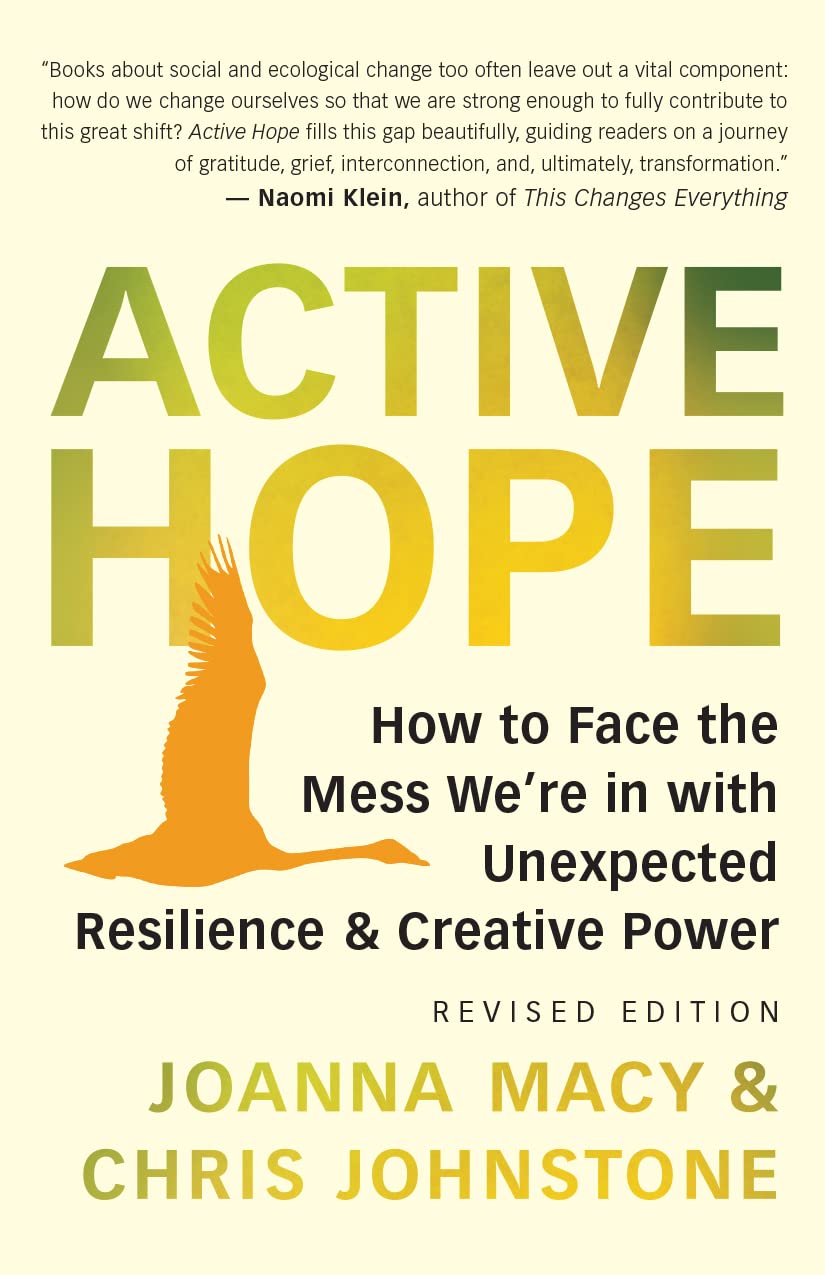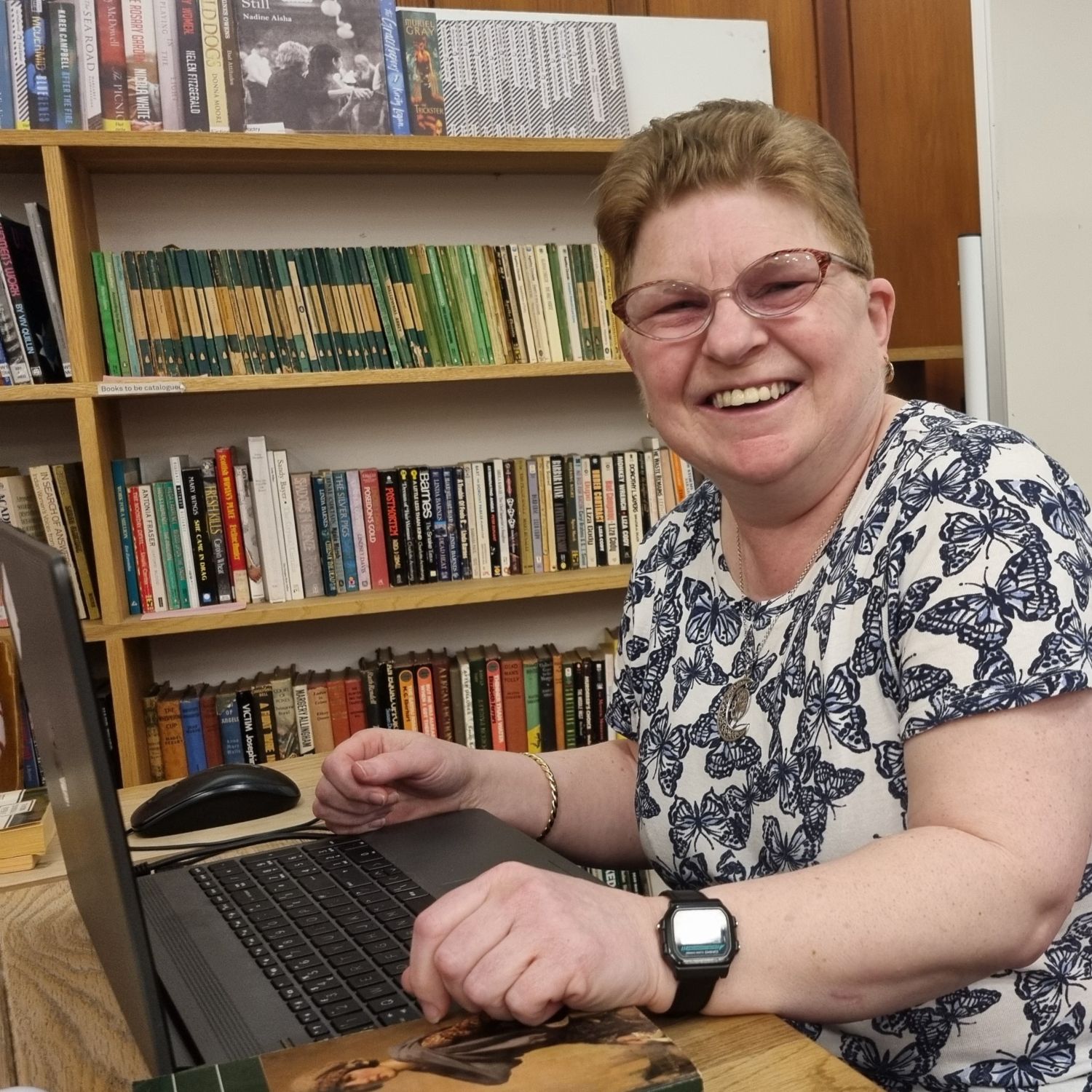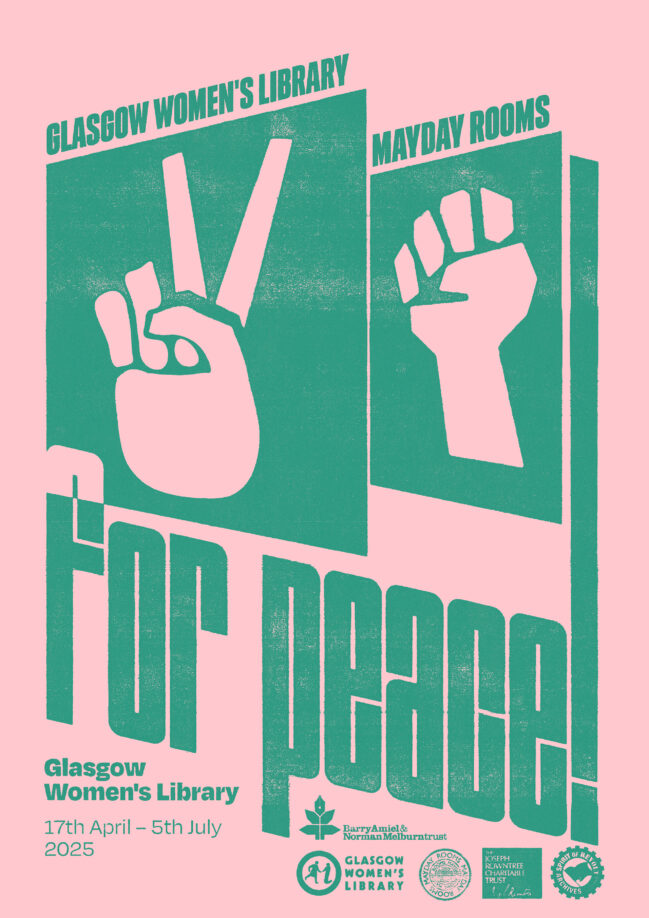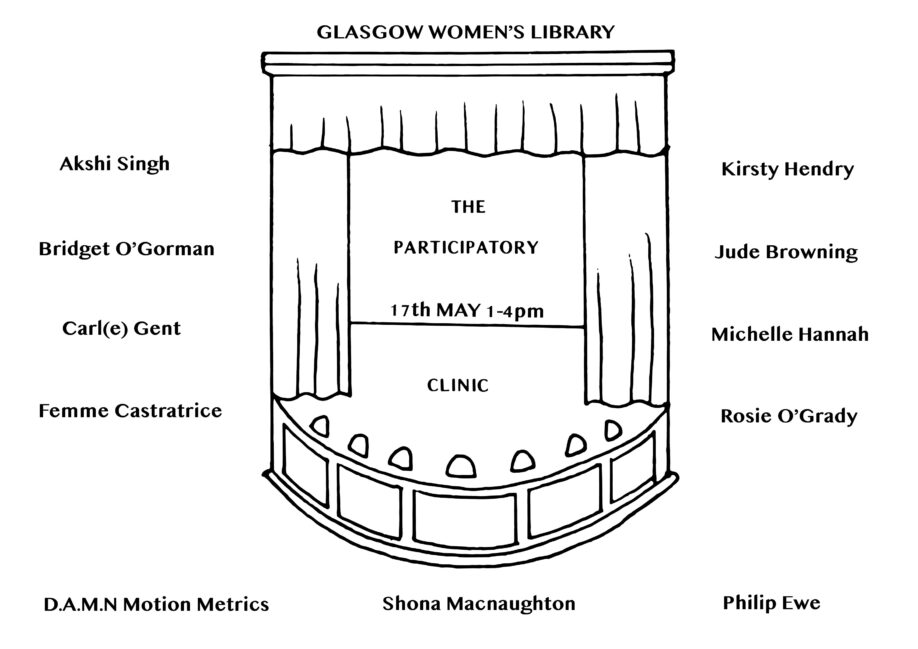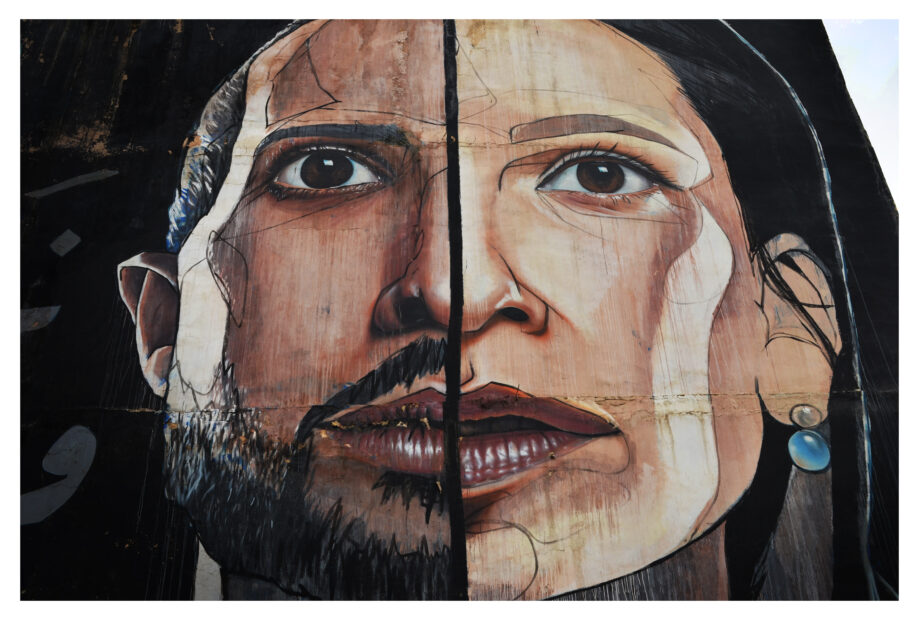Student Placement Amelia’s second blog on GWL’s work with the environment…
The Green Cluster, at Glasgow Women’s Library (GWL), is a group of women at the library who aim to put green thinking at the forefront of the library’s mind and meet to develop projects and goals that can make the organisation a more environmentally conscious place. I got to interview the current members of the green cluster and talk to them about their current green projects, as well as discussing why it is important for an organisation like GWL to be on the forefront of striving for climate justice. The members I interviewed were; Caroline Gausden, Jenny Noble, Becca Lewis, Mary Child and Gabrielle Macbeth. I spoke to them about the current, and future, aims of the cluster as well finding out why they personally wanted to be involved in the green aspect of the library and why they think everyone should care more about the climate right now.
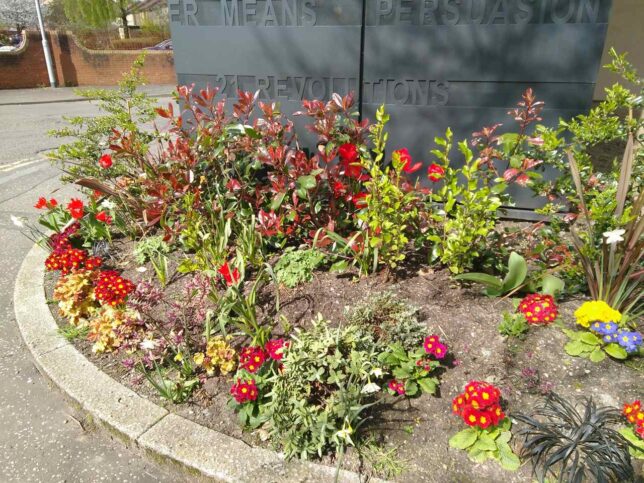
The women who work at GWL all have important roles that keep the library running and full of interesting events for the public to access, so I was interested to see why the members of the Green Cluster felt it was important to take on this further responsibility. Becca and Caroline had both previously been involved in, or learnt about, green projects before and so the green cluster seemed like the perfect place for them to continue their environmental work. Caroline said:
“So I’d been involved with things, like I’ve helped to make a zero waste café up in Aberdeen and worked in Govan Hill before that on starting up a charity called South Seeds, which was about growing things. So I had that background where I’d been involved in activism around environmental issues which made me think- I can be of use here…”
Gabrielle and Jenny didn’t have this same experience, but both said that they were keen to learn more about how to help the climate as they are very passionate about environmentalism and wanted to be involved in furthering it at GWL. Jenny stated,
“…I’ve had an interest in the environment for quite a long time and obviously things are becoming more and more crucial in that regard.”
For Mary, her interest in joining the cluster was a bit more specific. She is very interested in growing things and maintaining the garden at GWL, so she decided to join the cluster to try and make gardening higher on the agenda and encourage the use of the garden and outdoor spaces as a way to get people outside and help the environment as well.
Across all the interviews, the common thread that ran through the answers to this question was that they all deeply care about the environment and what to do what they can to help in the climate fight.
One of the main projects that the Green cCluster has been working on recently is the Roadmap to Net Zero handbook, this is an ongoing action plan that will hopefully mean the library is able to get to net zero emissions by 2030. This has included recording how much carbon the building uses so that they can try and reduce it, for example Becca spoke about how and organisation called Dress for the Weather tested the efficiency of the building:
“…so they did lots of measurements, they pressurized the air in the library with a fan and then measured how quickly the pressure dropped. And that was a way to find out how leaky the windows are and things like that.”
Now that they have been able to track the buildings carbon usage and emissions they have been able to design a 10-year plan of how to reduce it each year, for example they recently had all new secondary glazing fitted throughout the building to help increase its efficiency. They have also begun to reuse bottles from soap and cleaning products as a way to decrease their waste. This handbook will be a valuable resource for the next decade that informs GWL what changes it needs to make to reach its goal of becoming carbon neutral and having it all planned out will allow anyone who is knew to the library to know what the roadmap is for achieving this goal. To help achieve their goal of reaching net zero emissions the library has started the Women on the Wall fundraising initiative, people can donate and nominate the name of an important or influential woman to be up on a wall in the library that is dedicated to highlighting and remembering women who have had a positive impact. Jenny Noble spoke of the Women on the Wall project in our interview:
“…the Net Zero handbook is a big thing, and obviously that’s something that’s ongoing over the next decade, and tied into that is the Women on the Wall project, which is essentially a fundraiser to help with the work that will be needed towards achieving that goal, but also a great way of honouring women whose names might be forgotten otherwise and making sure that they’re preserved in the library.”
Along with the Net Zero handbook there are also many other projects that the green cluster is working on in the name of environmentalism. Gardening is very important to the library and they have an outdoor garden space around the library as well as some planters, that they maintain, at Bridgeton station. Making use of the outdoor space and ensuring it is a place for nature and insects to thrive is important, not only from an environmental standpoint, but also as a way to brighten up the local community and show that they are there to help. Gabrielle said about the garden:
“…we do some gardening as well, which is less focused on carbon emission reduction and more about creating space for insects, and bees. I think also just quite symbolically showing that we care about the environment. And again, it’s like, that’s quite small scale, we’ve got a few square metres, but in all counts, and those square metres hopefully, provide shelter and food to a few extra insects, who then might feed a few extra birds and so on.”
They also recently did some events with Glasgow School of Art that centred around discussing ways that the museum, and art, sector can become more climate conscious when thinking about its collections. This included having conversations about how artwork is used and collected, such as how to lower the carbon footprint of transporting and creating exhibitions and ensuring that artists are not just being asked to produce lots of new work for the sake of a it, but are looking at ways of being able to reuse materials. This is an event that Caroline was involved in:
“…we just did some events with the Glasgow School of Arts called Collecting in a Climate Emergency. So they’ve been trying to reimagine how the museum sector thinks about collections basically, if we’re just going to be accumulating stuff, or if we have a different approach to collections, and how we work with artists…”
I was also keen to find out if there were any green ideas or visions that the members of the cluster would like to see the library take on in the future, as striving for climate justice is going to be an ongoing battle that GWL will have to continue to be a part of. Many of the members highlighted the importance of making use of the outdoor space, as well and continuing to grow things, as a way to progress towards a greener future at the library. Becca said:
“…wouldn’t it be nice for us to really develop the public spaces around the library and to improve the environment in that light, even like the visual way as well. Yes, plants and biodiversity would be also really good because I think it’s just like quite a lot of scope for this car parks and the dead ends of the road and stuff and it’s like slightly neglected. And I think that there’s the side of it, you like sort of biodiversity and making wildlife corridors and things like that, which I think is really important.”
Gabrielle also spoke about the importance of using outdoor space for events and projects as not only a way to help limit carbon emissions at the library but also as a way to connect people to the outdoors, as over the years there has been an increased disconnect from growing things and actually valuing time spent outdoors. She then went on to discuss the possibility of using growing things and the outdoors to offset the building’s carbon emissions, for example finding ways to ethically plant things that are going to help in reducing carbon:
“I think when we think about offsetting, it’d be really great to do that really meaningfully, and that is about connecting to the environment, rather than it being another business idea, which is effectively what I’m hearing lots of is that it’s become part of the same kind of capitalism machinery of companies buying up land planting stuff, make money. It’s like, no, let’s think about what this is, what are we really trying to do here?”
Moving away from gardening, Jenny discussed her desire to have an open archive day centred around environmentalism and climate change. This would allow visitors to come into the library and look through archival material, that they wouldn’t usually get access to, as a way to highlight important green work and educate others on what women, and the library, have done in the past around this issue, as well as allowing people to be inspired to take up green projects of their own. A day like this would allow people to learn about this subject in a fun and optimistic way, that isn’t all doom and gloom being lectured at them, which would hopefully mean they are more likely to listen and actively pursue ways that they can help. Jenny stated:
“So I think it would be great to have a day where we would let people see this material and it sparks discussion but, also, if there can be a practical side to that as well, you know, we’ve had partnerships with Glasgow Seed Library for example, food banks and lots of other people who are campaigning for different forms of climate justice. I think if there was a practical element to a day like that as well, then it’s, again, a way to get people thinking and then hopefully doing so.”
The final thing I was interested to find out, from the green cluster members, was why they believe it is important for an organisation like GWL to be at the forefront of striving for climate justice. It would be easy for them to just simply ignore the issue and leave it for someone else to deal with, but they don’t, they are leading the way on fighting climate change. Many of them highlighted that the library has always been an activist, inclusive and grassroots organisation and part of that is taking a leading role in aiming to help with issues of social injustice, the climate emergency being one of them. Jenny answered:
“I think the library’s always posited itself as a change making organisation, and it’s important that we continue in that vein. Having the independence, as opposed to a local authority or organization, it just allows us to, to stride out in a different direction, to set a different example and to show how change is possible, even if it’s in small ways. I think you can’t call yourself an activist museum these days if you’re not thinking about the key issues that affect everybody across the globe…”
In addition to this, many of them highlighted the fact that climate change is going to disproportionately affect members of marginalised groups within society, for example women, and part of the values of GWL is to strive for equality and try to protect, and be a voice for, these underrepresented communities. Caroline said about this issue:
“…particularly women are going to face the brunt of some of these things, geographically in different areas, they will, the environmental issue is also like a class and a race and a gendered issue.”
The library is also a place of learning and education and many people are adequately informed on environmental issues and so it is important that the library takes on a role in trying to help people have access to more useful information around the subject. Also, the members of the library themselves are still trying to learn and become better at helping the environment as there is no easy, fix all solution, it is a constant process of trying to find the best ways in which we can live our lives whilst being eco-friendly. Becca stated:
“…we learn about this stuff, we talk about this stuff, we are involved in that because it does feel like there’s not a really great model. When I’ve been looking for models of retrofitting buildings to make them really energy efficient. […] If we can be part of that story of showing people how it can be done, which it seems like we are like, it seems like, other people are learning from what we’re doing as well. Then that’s a good thing.”
I would like to thank my interviewees; Jenny Noble, Mary Child, Caroline Gausden, Becca Lewis and Gabrielle Macbeth. I thoroughly enjoyed carrying out these interviews and they allowed me to really get a more detailed insight into the very important work that GWL is going to strive for climate justice. I believe that the library is at the forefront of enacting real progress and change and is a good model for others to follow, as well as being a great place to educate others on the seriousness of climate change and help them discover how they can make changes in their own lives to contribute to the ongoing process of environmentalism.

This content is licensed under a Creative Commons Attribution 4.0 International License.


